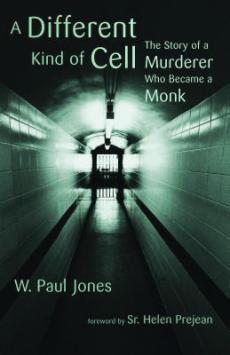By W. Paul Jones (Eerdmans, 2011)
 “Everyone in prison is innocent, and every prisoner claims to be a new person.” This dismissive one-liner was told by a parole officer to Paul Jones and reflects a common sentiment of resignation in the face of our country’s rapidly expanding prison population. A Different Kind of Cell: The Story of a Murderer Who Became a Monk challenges many popular presumptions about the possibility of true reform and the value of every human life.
“Everyone in prison is innocent, and every prisoner claims to be a new person.” This dismissive one-liner was told by a parole officer to Paul Jones and reflects a common sentiment of resignation in the face of our country’s rapidly expanding prison population. A Different Kind of Cell: The Story of a Murderer Who Became a Monk challenges many popular presumptions about the possibility of true reform and the value of every human life.
Clayton Fountain may not be a familiar name of a notorious murderer. However, a string of violent crimes in his early years of incarceration made him infamous within the correctional community. After going to prison for murder, he killed three fellow inmates and a guard. He was transferred from the federal penitentiary at Marion, Illinois to a specially built isolation chamber at a prison in Springfield, Missouri. He had round-the-clock camera surveillance with no trips out of his cell and no direct human contact, with food and mail passing through a door slot.
Jones served as Fountain’s spiritual advisor after Fountain’s entry into the Catholic Church, and Jones charts Fountain’s spiritual progress—from an academic interest in religion to a yearning to join the Trappists—in great detail. Fountain’s violent past caused all who knew him to question the validity of his conversion. Even after years of friendship, Jones was wary. In the end, Jones made me believe that Fountain’s journey, improbable as it seems, was credible.
As inspiring a story as it is, it also inspires anger and frustration. Beyond the mere prudence of denying parole to those with dangerous pasts, a system that endlessly punishes the criminal and his family and friends regardless of any attempts at reform should inspire righteous indignation. It makes me wonder if more beautifully reformed souls like Clayton Fountain are hidden from society behind bars.
This article appeared in the September 2012 issue of U.S. Catholic (Vol. 77, No. 9, page 43).













Add comment